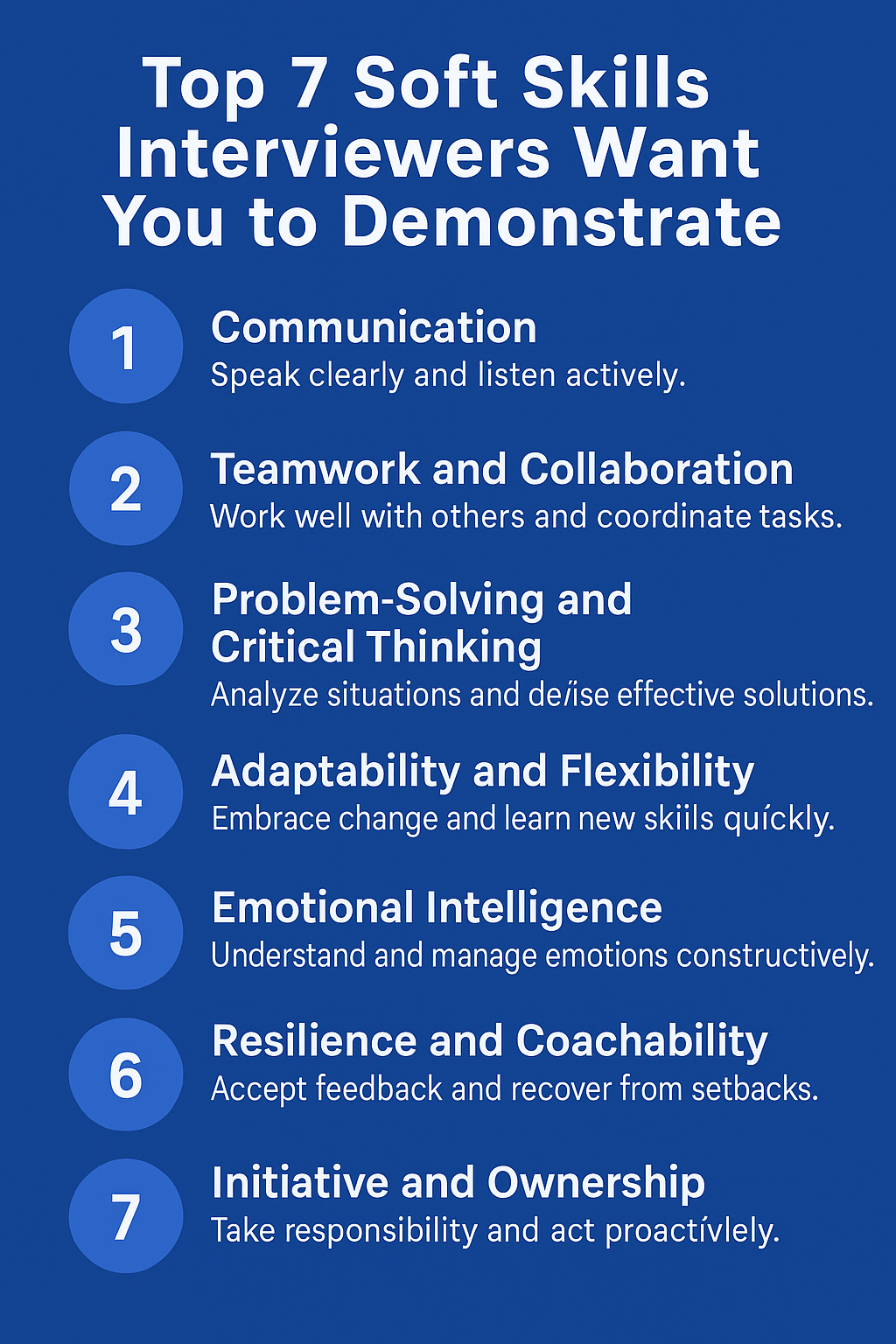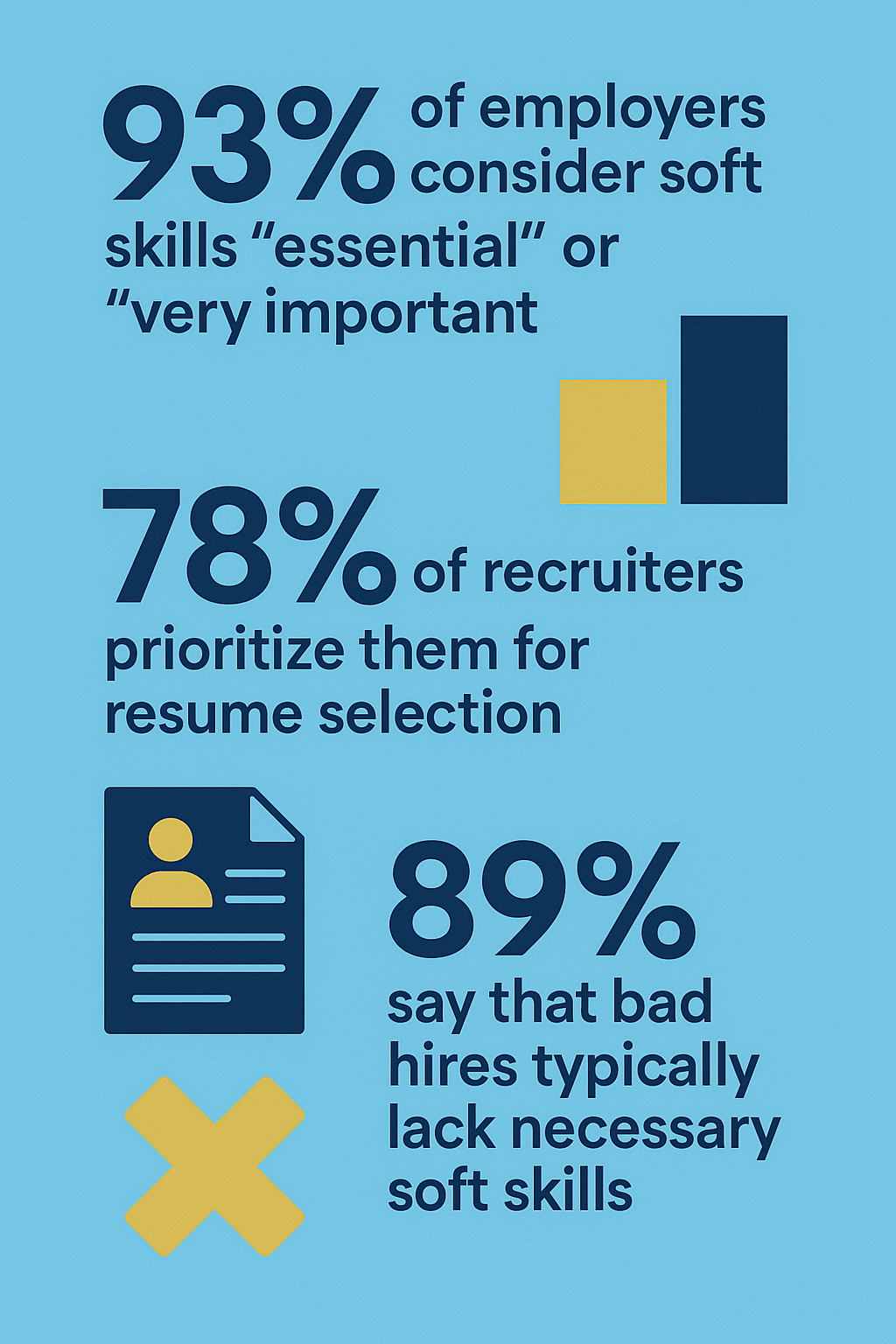When you sit for an interview, your technical skills matter. But your soft skills often decide the outcome. Interviewers now value qualities like adaptability, communication, and emotional intelligence more than ever. Here are the top seven soft skills they look for—and how to show them clearly.

1. Communication
Clear speaking heads all lists of must-have interview skills. Employers desire individuals who are confident in speaking and good listeners. During an interview, respond with brief, coherent sentences when answering questions. Have good eye contact and a warm tone. This is evidence that you are able to express thoughts and establish rapport.
2. Teamwork and Collaboration
Few jobs happen solo. Employers seek candidates who can work well with others. Talk about campaigns or class projects where you coordinated tasks and helped the team succeed. Use “we” when describing outcomes. This shows you fit in team environments.
3. Problem‑Solving and Critical Thinking
Interviewers often ask for stories about how you solved a challenge or made a decision under pressure. Instead of stating soft skills, describe a specific problem and your steps to fix it. Share results or lessons. That shows analytical thinking and smart Action.
Wondering how you can write a resume summary that reflects you? Read our blog to know how to do it.
4. Adaptability and Flexibility
In 2025, workplaces change fast. Employers want people who can pivot quickly and embrace new tools or tasks. Mention times when you learned a new tool or adapted to plan changes. This skill signals a growth mindset and resilience.
5. Emotional Intelligence
Emotional intelligence is the ability to read and manage emotions in yourself and others. Employers desire this for conflict resolution, constructive feedback, and team building. Describe a situation where you received constructive feedback calmly or acknowledged an issue of a team member. This illustrates maturity and empathy.

6. Resilience and Coachability
Getting employed typically entails overcoming failure, criticism, or new habits. Coaching ability and resilience indicate that you can rebound and develop. Provide an instance when you requested criticism or altered after a failure. This is indicative of your capacity to develop and learn.
7. Initiative and Ownership
Interviewers admire candidates who take Action without being asked. Share times when you took up a leadership task or solved a problem independently. It might be organising a college event or helping a client early in your internship. This shows responsibility and drive.
How to Demonstrate These Skills in an Interview
Make use of the STAR method: state the Situation, describe the Task, state your Action, and state the Result. If questioned on teamwork or problem-solving, first set a context briefly, describe what you did, and finish with what you learned or improved. This technique is clear and effective.
Why These Soft Skills Matter More in 2025
AI and automation handle many technical tasks. This makes soft skills even more important. Employers now seek human traits that machines can’t replicate—like empathy, flexibility, and leadership. Candidates with both technical and soft skills are clearly preferred. Context from Business Insider notes that interpersonal skills outperform AI in real-world decision-making.
Final Thoughts
Interviewers look beyond degrees and technical knowledge. They want people who can communicate, collaborate, adapt, and lead. By sharing real examples and using action-based responses, you show soft skills in a way that stands out. These soft skills help you get an offer and succeed in any role.
Want help showcasing your soft skills effectively on your resume or during interviews? Try Salahkart. Our resume builder gives prompts to highlight soft skills and offers interview prep guides so you can speak with confidence.
Start building your smarter, skill-focused resume today.

